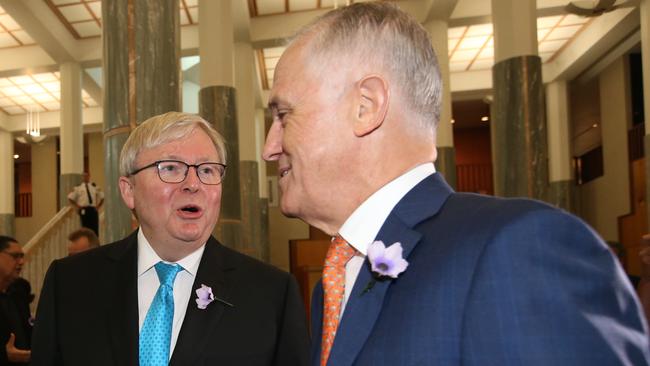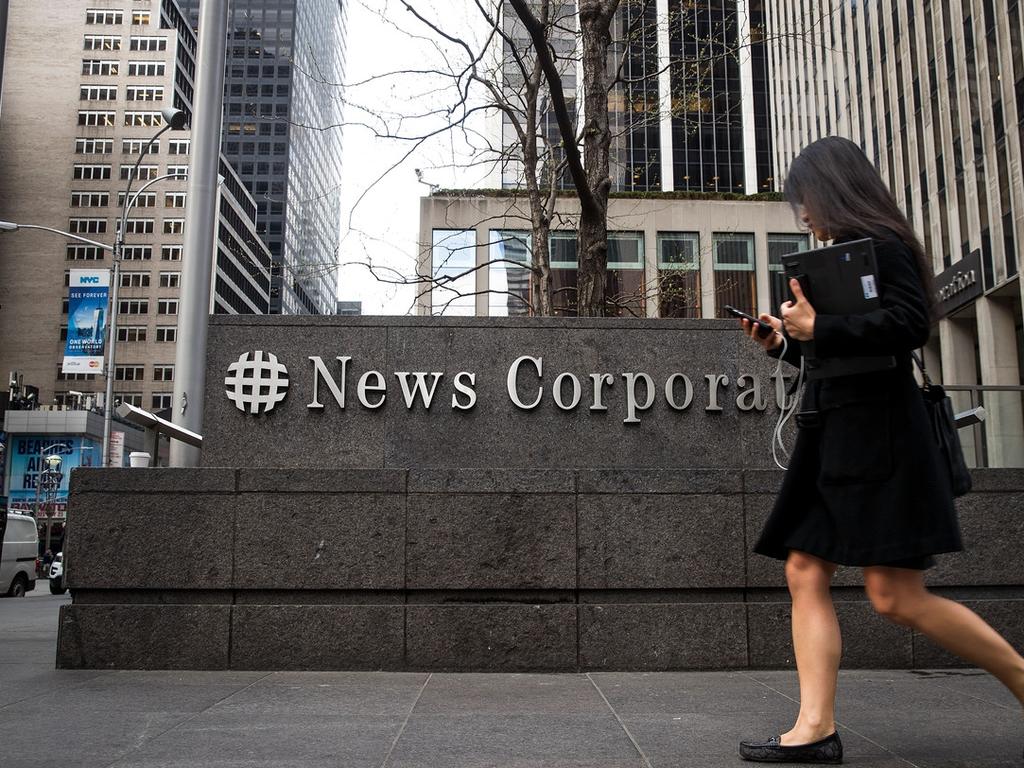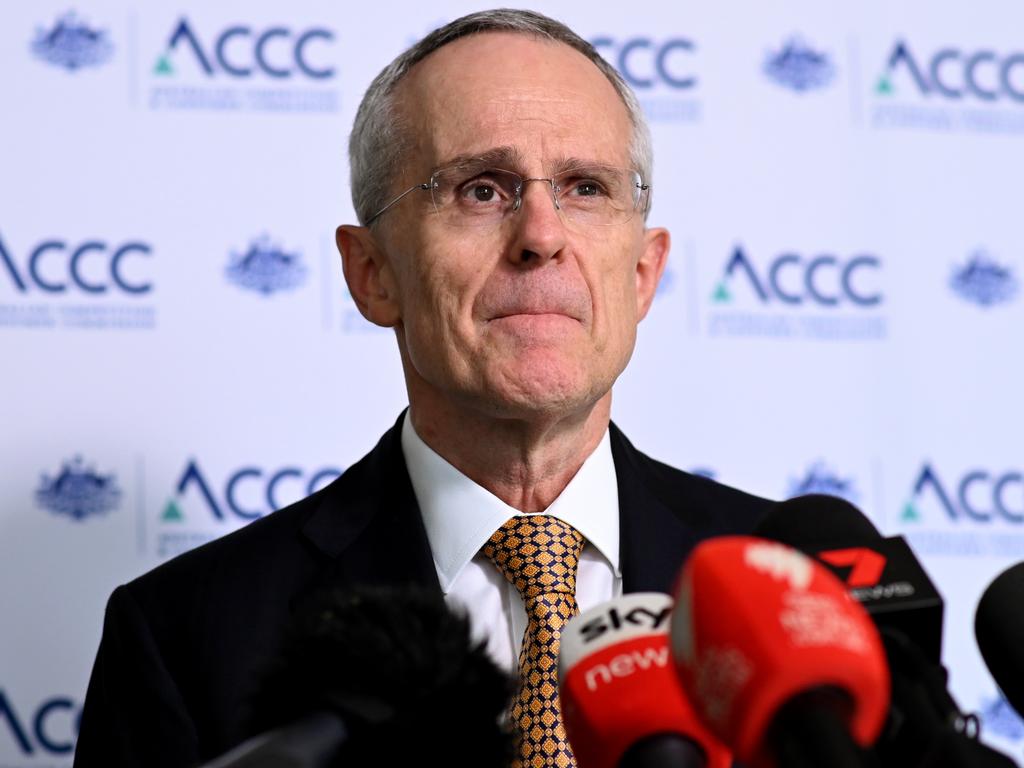
The legislation will be based on the mandatory code developed by the Australian Competition & Consumer Commission after the failure of negotiations between media companies and the tech giants, with Scott Morrison warning the giants in September against threatening his government.
Can the corrosive undermining of democratic process and debate by these tech giants be curbed? Is there a viable method of accountability for these companies in any sovereign democracy? Is it possible to extract payment from Big Tech, which has built trillion-dollar businesses partly by exploiting content from other media companies?
Australia is in the forefront of global efforts to impose Big Tech accountability, with other countries monitoring the awaited Australian legislation and the coming Biden administration in the US pledged to check the digital platforms and hold them accountable. With the business model for journalism in trouble one of the goals of the new law is to support and save public interest journalism.
ACCC chairman Rod Sims has branded the Big Tech media operations as predatory and based on monetising customer data largely in customer ignorance. Unilateral action by Australia cannot turn the global tide but it can shape it.
This will become a test of wills and practicality. Facebook warned it would retaliate by stopping Australians from sharing local and global news on Facebook and Instagram (presumably fake news and conspiratorial disinformation are OK), while Google said the law “would force us to provide you with a dramatically worse Google Search and YouTube”.

“I think people from these companies understand that when I say something I mean it — and that I intend to follow through with it,” Morrison warned two months ago. “I’m quite certain we’ll come to a sensible outcome on this and it won’t need coercion. Wherever it comes from, it’s not something I respond very well to.”
Josh Frydenberg has responsibility for the laws and for determining the companies to which they will apply. At present that is limited to Google and Facebook. The purpose is to address the unequal bargaining power between Big Tech and Australian media companies, now critical with most people receiving political news from outside traditional media.
The new law will incorporate a bargaining code requiring Google and Facebook to negotiate and pay for news content they use with a resort to a binding decision by an independent arbitrator if agreement, as expected, cannot be reached. To be meaningful the revenue share must be substantial. The core issue is whether Australia can fashion a media landscape in the digital age consistent with a properly functioning democracy. A critical provision in the government proposal is expected to include the ABC and SBS, as benefiting media companies — despite the contrary argument that the business model of public broadcasters has not been upset because the tech giants have not stolen their advertising revenue.
But there is an in-principle case to include the public broadcasters. This is a pivotal step for the Morrison government and it has a political motive. It will be welcomed by the Labor Party and the Greens, thereby facilitating passage of the law that already has much bipartisanship across the main parties.
Morrison’s message is the government is striking a “reasonable” outcome and seeks a result both sides can accept — an ambitious aspiration. Will the new law work, given the views of many hi-tech gurus that it will be ineffective against the march of technological innovation? This is not just a question for Australia but for every democracy — and it now sits on their priority agenda.
It is extraordinary, therefore, that the recent media debate in Australia has hardly mentioned the primary media issue of our times but instead has seen a re-run of an old and familiar story: the abuses of the Murdoch media, as advanced by Kevin Rudd, backed by Malcolm Turnbull, in their quest for a royal commission spearheaded by Rudd’s argument that News Corp “has ceased to be a news organisation” and now operates as a political party.

Rudd is a strange mix these days — a globally pre-eminent authority on China and US-China relations, where his views are essential in following the international debate, and a social media activist almost always angry in his hyperbole and gesture politics against News Corp.
There will be no royal commission. Neither side of politics supports it, not because they feel intimidated but because the idea makes no sense. Rudd’s petition wants the royal commission to investigate everything — blending opinion and news, alleged attacks on free speech and public debate, Big Tech, mass sackings, diversity, recent takeovers, corporate decision-making, whistleblower protection, official secrecy, dispute resolution and guaranteeing our democracy.
If this proposal had been put before Rudd as prime minister he would have dismissed it as nonsense from activist amateur hour. And that’s being polite. Can you imagine Rudd as prime minister solemnly unveiling such a royal commission aimed at everything and nothing? Sadly, this is a too familiar story: former prime ministers after they have left office demanding their successors do what they didn’t do when they had the chance, then getting even more vehement when nothing happens.
This is not a serious idea. It belongs to the world of social media and gesture politics, where what counts is your virtue as distinct from real-world outcomes. Rudd gave the game away on the ABC’s Insiders, saying he wanted a royal commission to get a “national conversation about how the Murdoch bullies try to dominate Australian politics”. So that’s what Rudd, a personally aggrieved citizen, wants but it doesn’t get to first base as grounds for a prime minister to act on. And he must know this. He gets instead a short-term tokenistic Senate inquiry.
Rudd complains about News Corp supporting Coalition governments. But this is merely the working rule of established media. Centre-right newspapers back centre-right parties and centre-left newspapers papers back centre-left parties. If you take the two most loved progressive papers in the world, the last time The New York Times backed a Republican for president was 1956, and the last time The Guardian backed a conservative for British prime minister was 1951. Yes, they are seriously partisan — and that’s a free media.
Note that progressive papers promote their political and ideological causes relentlessly in story selection, emphasis and presentation throughout news and opinion, with the four-year campaign by the US liberal media against Donald Trump being the ultimate example.
You also might note that News Corp papers at various elections here backed Gough Whitlam, Bob Hawke, Rudd and Turnbull. But the bigger point is that all modern media align with a political constituency as integral to their identity, their business model and their client-subscriber base. There are no exceptions; witness Fox News, CNN, The New York Times, the BBC, the ABC, The Guardian, The Daily Telegraph, The Sydney Morning Herald and The Australian. The list is endless.
This is the foundational point for any debate about media bias. It reflects an industry-wide cultural, financial and political reality. If you don’t start from this premise, if you cannot admit this reality, then you don’t deserve to be taken seriously in the media debate — and that seems to eliminate a lot of people. Meanwhile focusing on gesture politics is no substitute for focusing on real public policy when that policy is Australian, evidence-based, serious reform and globally significant.








In the dying days of the 2020 parliament and after facing intense lobbying the Morrison government is expected to stand resolute and introduce a globally significant reform to force digital giants Google and Facebook to pay for the news they exploit.